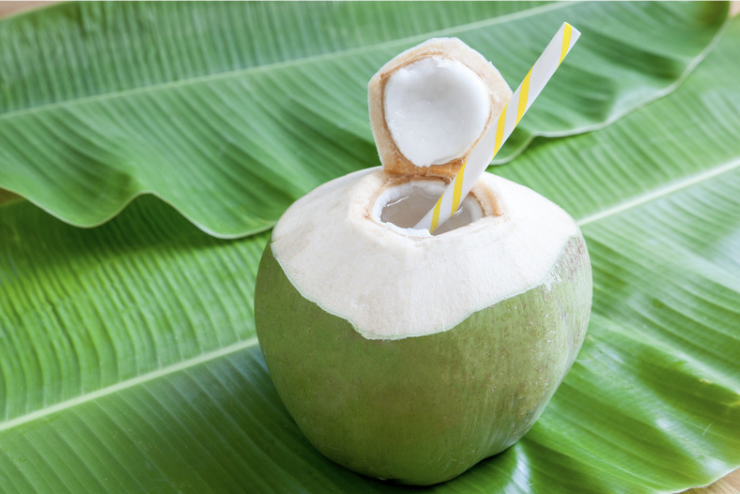
Layanan IV Hangover di Bali: Kapan Cocok dan Kapan Harus Periksa Dulu
Bangun dengan hangover parah di Bali? Matahari Januari 2026 baru saja mengintip di balik rimbunnya pepohonan di villa Anda di
Bali, the tropical paradise known for its stunning beaches, vibrant culture, and delicious cuisine, attracts millions of visitors each year.
However, amidst the excitement of exploring this beautiful island, some travelers may experience stomach discomfort, pain, or bloating, which could be signs of gastritis. Read further to know the causes, symptoms, and treatment options for gastritis in Bali, as well as natural remedies and the expert care provided by Trishnanda Care Centre.
Gastritis is a condition characterized by inflammation of the stomach lining. It can be acute, lasting for a short period, or chronic, persisting for months or even years. If left untreated, gastritis can lead to more severe complications such as stomach ulcers, bleeding, and in rare cases, stomach cancer.

Several factors can contribute to the development of gastritis, including:
The most common symptoms of gastritis include:
If you experience severe or persistent symptoms, it’s crucial to seek medical attention to prevent complications and receive appropriate treatment.
At Trishnanda Care Centre, our experienced healthcare professionals are dedicated to providing comprehensive care for patients with gastritis. Our approach to treatment involves identifying and addressing the underlying cause of the condition, as well as offering symptom relief and support for healing.
Depending on the cause of your gastritis, treatment may include:
Our medical team will work closely with you to develop a personalized treatment plan that addresses your specific needs and helps you find relief from gastritis symptoms.

In addition to medical treatment, several natural remedies can help alleviate gastritis symptoms and support the healing process. Bali’s rich natural resources offer a variety of options for those seeking alternative or complementary therapies.
Remember, while these natural remedies can be beneficial, it’s essential to consult with a healthcare professional before starting any new treatment, especially if you are taking medications or have underlying health conditions.
Prevention is key when it comes to maintaining a healthy digestive system and reducing the risk of developing gastritis. Here are some tips to keep your stomach happy and healthy during your time in Bali:
Gastritis can put a damper on your Bali adventure, but with the right knowledge, care, and support, you can effectively manage and treat this condition. By understanding the causes and symptoms of gastritis, seeking expert medical care at Trishnanda Care Centre, and incorporating natural remedies and preventive measures into your daily routine, you can take control of your digestive health and fully enjoy all that Bali has to offer.
Remember, your well-being is our top priority. If you experience persistent or severe gastritis symptoms, don’t hesitate to reach out to the caring and knowledgeable team at Trishnanda Care Centre. We are here to provide you with the personalized care and support you need to find relief, healing, and optimal health during your time in paradise.
IV drip treatments typically start to alleviate symptoms within 30 minutes to an hour of starting the infusion. However, the duration of the treatment and the time it takes to feel the full effects may vary depending on the severity of your dehydration and the specific composition of your IV drip.
It is not recommended to consume alcohol immediately after receiving an IV drip treatment for dehydration. Your body needs time to fully rehydrate and recover. It’s best to wait at least 24 hours before consuming alcohol again and to do so in moderation, while continuing to prioritize hydration with water and electrolyte-rich beverages.
Side effects of IV drip therapy for alcohol dehydration are generally mild and may include temporary discomfort at the injection site, cold sensation in the arm during the infusion, and a slight taste of vitamins in the mouth. More serious side effects are rare but may include allergic reactions or infections. The medical professionals at Trishnanda Care Centre are trained to minimize risks and address any concerns you may have.
While IV drip therapy can be an effective treatment for alcohol dehydration, it is not recommended to use it as a preventive measure before drinking alcohol. The best way to prevent alcohol dehydration is to practice moderation, alternate between alcoholic beverages and water, and consume electrolyte-rich foods and drinks.
The frequency of IV drip treatments for alcohol dehydration depends on your individual needs and health status. Trishnanda Care Centre’s medical professionals will assess your condition and provide personalized recommendations. In general, it is not advisable to rely on IV drip therapy as a regular substitute for maintaining proper hydration and healthy drinking habits.

Bangun dengan hangover parah di Bali? Matahari Januari 2026 baru saja mengintip di balik rimbunnya pepohonan di villa Anda di

Kapan waktu terbaik untuk melakukan tes NS1? Tes NS1 (Dengue Early Antigen) paling akurat dilakukan dalam 1 hingga 3 hari
Contact Our Doctor Now